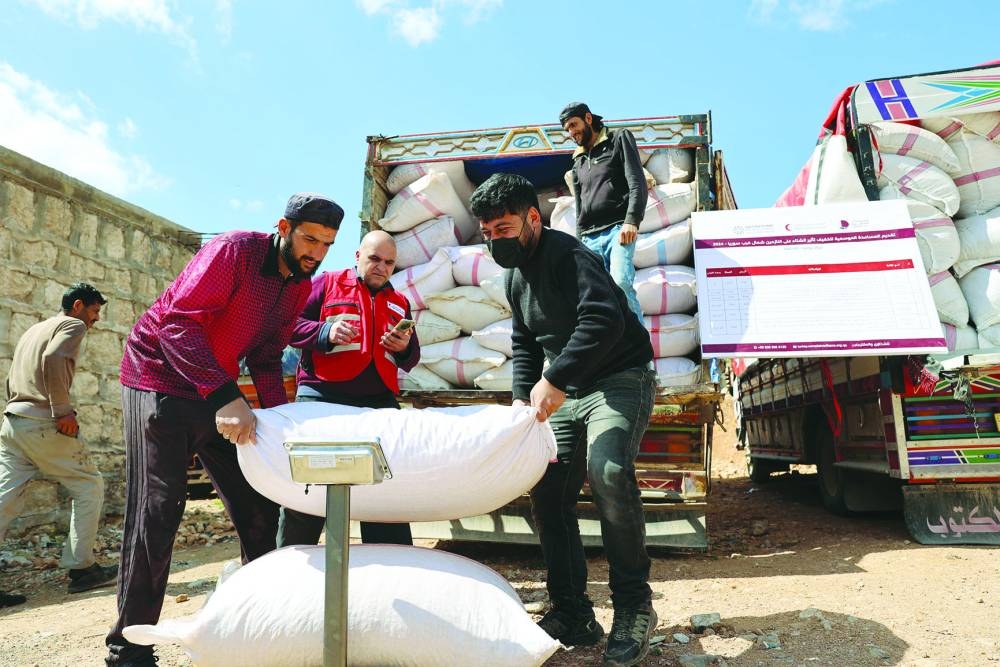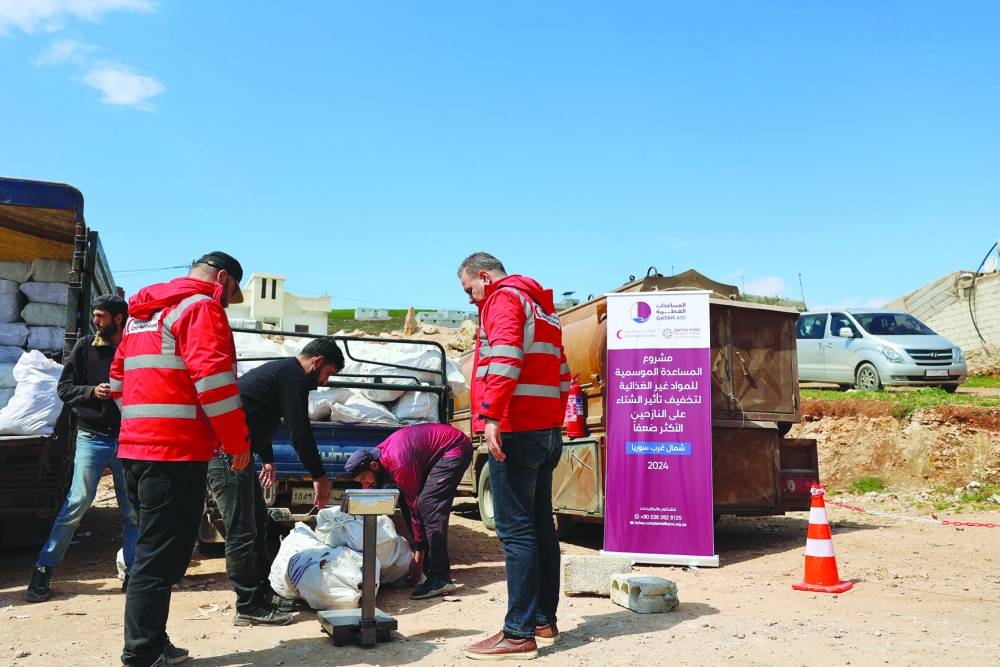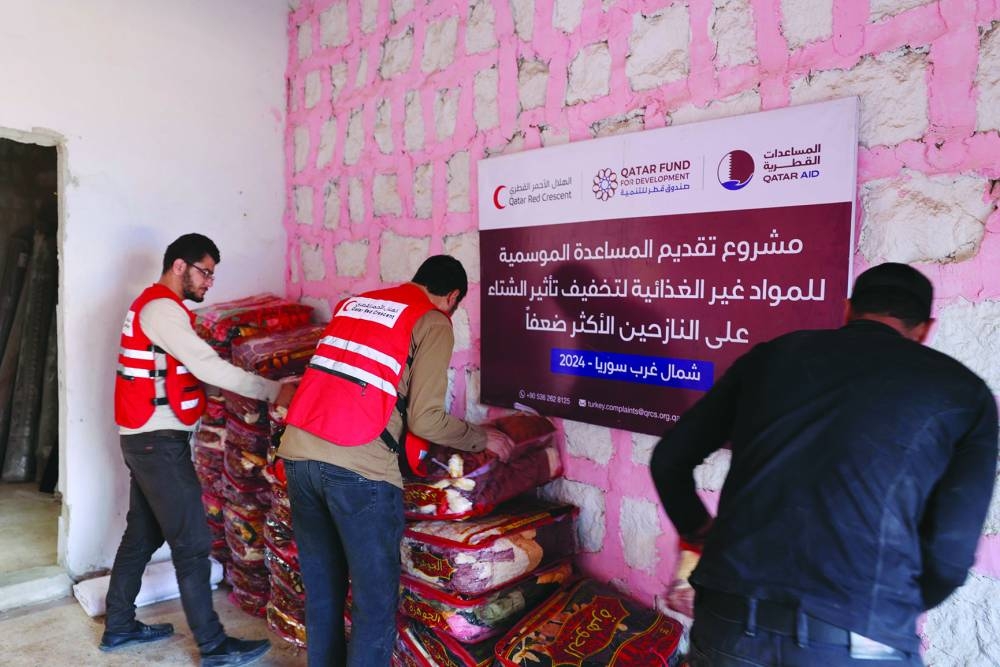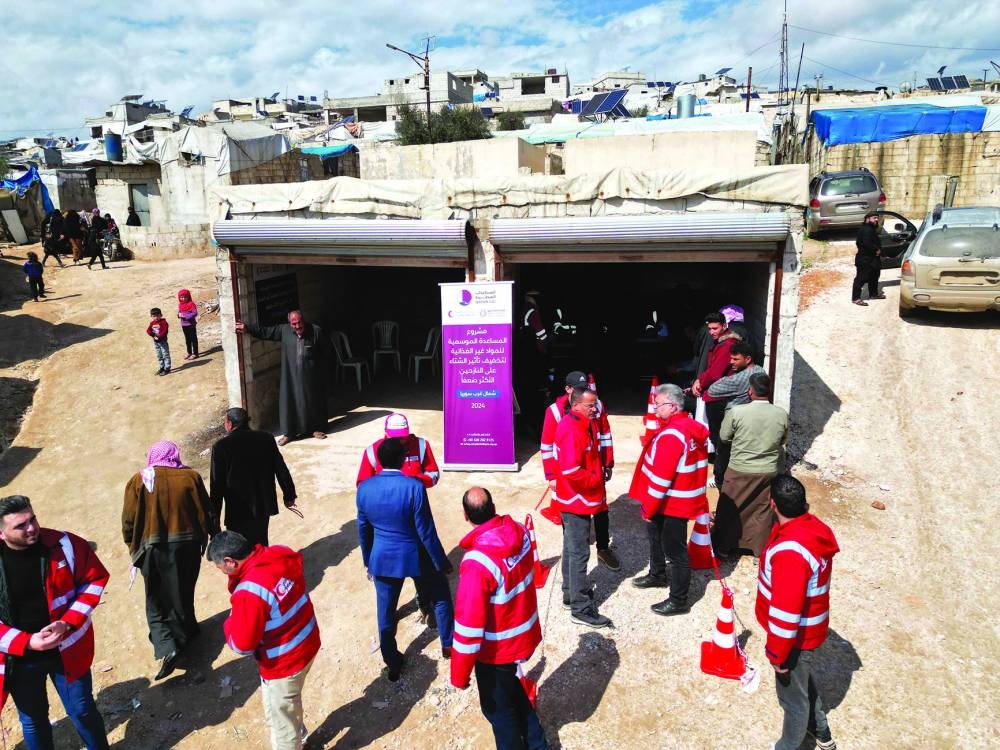Qatar Charity (QC) has set up an automated bread production line in Maabatli in the Afrin district of northern Syria, as part of Qatar Charity's Support the Wheat Value Chain project for the fifth consecutive year.
The bread production line aims to enhance food security in northern Syria, improve self-sufficiency, and to support the local community. The production capacity of this production line reaches 15,000 loaves of bread per day to meet the needs of more than 50,000 people, especially internally displaced persons (IDPs) residing in camps.
These efforts come within the framework of Qatar Charity's projects for early recovery, development, and sustainability in the region.
In its fifth consecutive year, the project has succeeded in supporting 120 farmers who benefited from agricultural input support such as seeds, fertilizers, pesticides, and the cost of fuel for irrigation. Qatar Charity purchased 1200 tons of wheat from farmers in the area, and 925 tons of flour were processed and distributed to bakeries in the region, to be sold at subsidised prices. The number of beneficiaries exceeded 25,000 IDPs living in camps. Additionally, the project distributes free bread to IDPs in several camps, benefiting around 5,000 individuals.
In this context, Director of Services and member of the Local Council in Maabatli, Aref Mohamed Ali extended thanks to Qatar Charity for its vital role in improving living conditions in the camps through this project, especially since the automated bread production line plays a pivotal role in providing subsidised and free bread, reducing financial burdens on the population and enhancing food security in the region.
It is worth mentioning that Qatar Charity seeks to fund the sixth edition of the project, and looks for periodic financing due to its significant importance in supporting the resilience of IDPs and farmers by economically empowering them.
The plan for the sixth year focuses on expanding support and building resilience in local communities through new activities targeting climate change, and enhancing the role of women in rural areas to work on wheat products, as well as providing agricultural machinery to farmers and local institutions operating in the region to address climate change.




